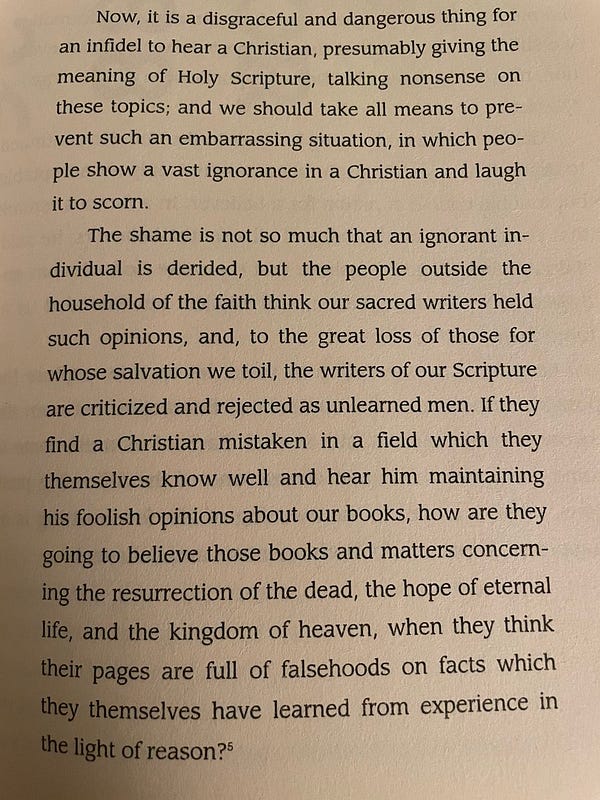I mentioned a while back that I was reading “The Language of God” by Francis Collins. Collins was director of the human genome project at the time but is better known these days as the director of the National Institutes of Health.
I can’t deny that one of the initial things that appealed to me about the book was Collins’s position as head of the NIH, one of the authorities that that was instrumental in fighting COVID-19 and helping to develop the COVID vaccines. A lot of people would not believe that anyone in his position could be a Bible-believing Christian, let alone write a book defending the faith.
The book is not a typical Christian book as it deals at length with the relationship between religion and science from the position that the two can be harmonized. Believers will be encouraged to hear about how many scientists are Christians, but many will also be challenged by the scientific evidence that Collins presents for evolution.
Quite a few Christians don’t believe that evolution is compatible with Christianity. Collins and many others believe otherwise. Several parts of the book are devoted to his attempt to harmonize science and faith, as well as examining alternative explanations for the genomic evidence of the common DNA found in so many of God’s creatures.
There’s a lot that we don’t know about creation and a great many other things. The Bible does not give us all of the answers, but it does tell us what we need to know.
I’m going to draw some fire for saying this, but the Bible is not meant to be taken literally. At least not in toto. Parts of the Bible are literal and other parts of it are not. For example, Hebrews 4:12 says that the “word of God is alive” and “sharper than any double-edged sword.” That’s not literally true (although we can’t forget that “literally” may not literally mean “literally” these days,” as noted below). Neither is Revelation 2:16 where Jesus tells John the Revelator, that he “will fight against them with the sword of my mouth.” Jesus does not literally have a sword tongue.
The key is determining which passages are literal and which are figurative. Sometimes this is not easy.
As a biologist, Collins is well-versed on the evidence for evolution and I won’t go into detail, but he does present a compelling case. However, one of the most interesting aspects of the book is that he does not present this evidence as a case against God as a creator. Instead, he views the elegance of DNA and genes as evidence that a higher power is responsible for life.
In recent years, I’ve become aware that a lot of what we are taught as Christians is an interpretation of what the Bible says, rather than what the Bible actually says. Like the ancient Jews that we study in Sunday School, modern Christians often find that our opinions about scripture can become doctrine and dogma.
For example, I’ve been taught for much of my life that the days mentioned in Genesis 1 were literal, 24-hour days. But the Bible wasn’t written in English, for one thing, and the Hebrew word, “yom” that is used in Genesis has multiple meanings, for another. The etymology of the word paired with the scientific evidence for evolution suggests that the creation account in Genesis is not an eyewitness account of a literal week.
That’s especially true since there was no person there to witness the creation. Even Adam, the first man, wasn’t created until the sixth day and the Book of Genesis is traditionally considered to have been authored by Moses, who came much too late to witness creation. Chapter two has a parallel creation story for the creation of Adam and Eve, which is further evidence that the first chapters of Genesis may be allegorical rather than literal.
In at least one other common usage of the word, the meaning is not a 24-hour period. In multiple verses, such as Joel 2:31 and Zechariah 14:1, the word “yom” is used in the phrase, “day of the Lord.” This is not typically understood as a single 24-hour period but as a period of divine judgment.
I’ll add here that Collins addresses the theory that evolutionary evidence could have been fabricated by God to confound science. I considered this possibility myself, but Collins asks what the point to such a deception would be. Further, he rightly points out that if the God of truth planted a false trail of scientific evidence to send humanity off in the wrong direction, then he isn’t the God that the Bible says he is.
The thing is that evolution does not undermine the Bible. And that’s not just Francis Collins making that point, a host of historic Christian leaders from Billy Graham to C.S. Lewis didn’t find evolution and the Bible to be incompatible.
What can do damage to the church is making extra-biblical beliefs into litmus tests for Christianity. That’s especially true of beliefs that contradict scientific evidence that is available for all to see. It doesn’t matter whether the subject is evolution, the effectiveness of vaccines, or something else. Collins’s book includes a relevant passage from Augustine on this topic, which I took the liberty of tweeting.


The last section of the book is about bioethics. This was very thought-provoking as well. Topics ranged from abortion to stem cells to cloning and Collins’s scientific background paired with his theistic views on natural law enables him to delve deeper into these and other topics and point out some errors and inconsistencies in the arguments of both sides.
Whether you believe in evolution or not and however you stand on biomedical issues, the important thing is that these details do not affect whether we are real Christians or not. Romans 10:9 tells us that the prescription for being saved is to “declare with your mouth, ‘Jesus is Lord,’ and believe in your heart that God raised him from the dead.” The rest is details.
We don’t have to get every issue right. We don’t have to know exactly how creation happened or understand the intricacies of every ethical issue. We just have to repent of our own sins (associated with making Jesus Lord of our lives) and trust in God and the Holy Spirit.
I thoroughly enjoyed and was blessed by the “Language of God” and I encourage believers in the Bible, science, or both fields to give it a read. I think you’ll be glad you did.


No comments:
Post a Comment